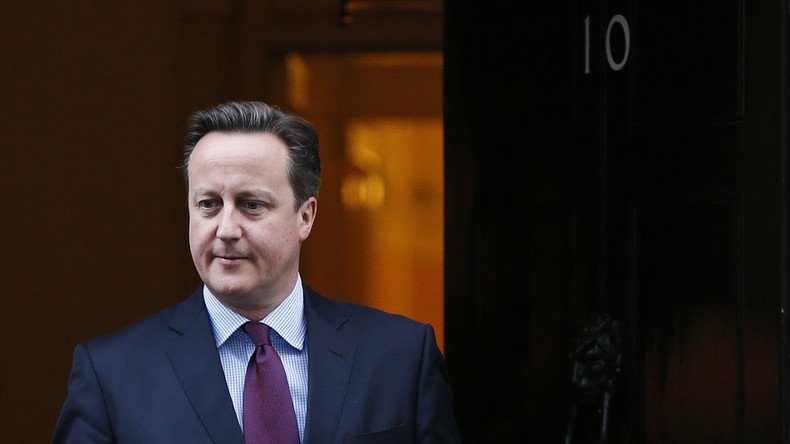Dirty money, corruption, financial secrecy: UK govt must act, says Transparency Intl

The British government must more to tackle money laundering in the City of London, overseas bribery by UK firms, lax regulation and the secretive nature of British-controlled tax havens, a leading anti-corruption think tank has said.
Transparency International (TI) UK made the remarks following the launch of its Corruption Perceptions index on Wednesday. The anti-corruption review, which is published yearly, covers perceptions of public sector corruption in 168 states across the globe.
UK has gone up 4 places on Corruption Perception Index but now it's time for serious action: https://t.co/LWQF9Cgj47pic.twitter.com/ZBOWu76Snx
— Transparency Int. EU (@TI_EU) January 27, 2016States that score highly on the list tend to demonstrate high levels of press freedom, transparency in finance and justice systems that are independent of government. States that score poorly on the index tend to be plagued by conflict, have weak public institutions and have lower levels of press freedom.
'A lot to do'
Britain, now level with Germany and Luxembourg on 81 points, returned to the top 10 states this year – a ranking it had not achieved since 2002.
Denmark clinched the top spot for the second year in a row with 91 points, while North Korea and Somalia came last with just eight points each.
Despite recent progress, experts say Britain has a long-anti-corruption battle ahead.
#CPI2015 TI-UK notes UK still has much to do despite top ten ranking: starting with money laundering, UK politics, FoI
— Robert Barrington (@TIukED) January 27, 2016While Prime Minister David Cameron’s anti-corruption rhetoric has been robust in recent years, the government’s action at home and abroad in the area has been muted.
The government has failed to hold bankers that facilitate money laundering accountable and continues to forge close relations with states that have a serious corruption problem such as China and Saudi Arabia. In addition to this, its review of the state’s Freedom of Information laws has attracted criticism, and is a focus of concern for transparency campaigners.
Money laundering and financial secrecy
TI UK’s executive director Robert Barringdon said it’s understandable that skeptics remain unconvinced about Britain’s improved corruption ranking.
“They point to overseas bribery by UK companies, the laundering of corrupt assets through the City, the lax regulation and lack of transparency in British-controlled tax havens, to say nothing of corruption scandals here in the UK,” he said.
Barringdon demanded the government offer more funding and support to the Serious Fraud Office (SFO), an independent government body tasked with investigating those who commit fraud, bribery and corruption. He said the government’s proper implementation of the Bribery Act is also vital, and called for an increase in the SFO’s annual budget to £75 million (US$107 million).
Barringdon condemned the UK’s culture of political corruption, arguing a series of lobbying, revolving door and political funding scandals discredits Britain on the international stage. He said Unexplained Wealth Orders (UWO) could be introduced to tackle dirty money in the City of London, while beneficial ownership provisions for properties registered in the UK would clamp down on financial secrecy.
Barringdon branded Britain’s Overseas Territories conduits for corruption and the “Achilles Heel” in the government’s anti-corruption plans. He called on the government to deliver on its national Anti-Corruption Plan and clamp down on dirty money circulating throughout the UK.
While tax evasion and corruption are likely to be the most common sources of ill-gotten gains in Britain, drug dealing, human trafficking and black-marketeering are also potential origins.
In March 2015, Scotland Yard suspected criminals, tax evaders, human traffickers and drug dealers of having laundered billions of pounds worth of dirty money by purchasing British properties through anonymous offshore companies.
The Metropolitan Police said at the time more than £180 million (US$276 million) worth of British property had been subject to criminal investigation since 2004 as potential proceeds from corruption.












